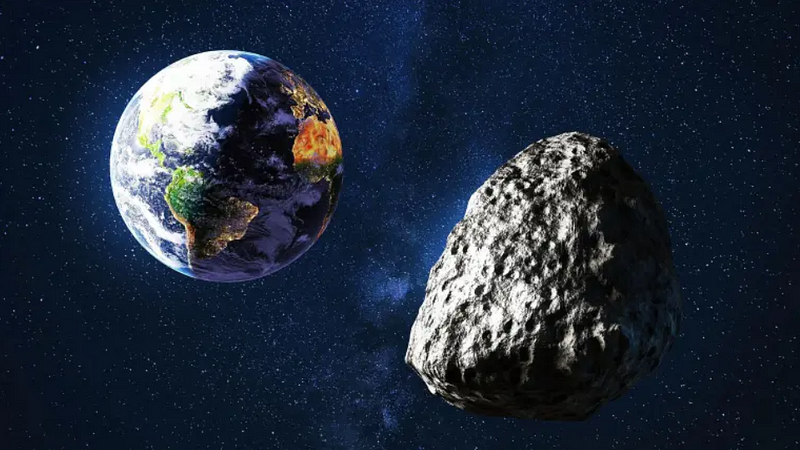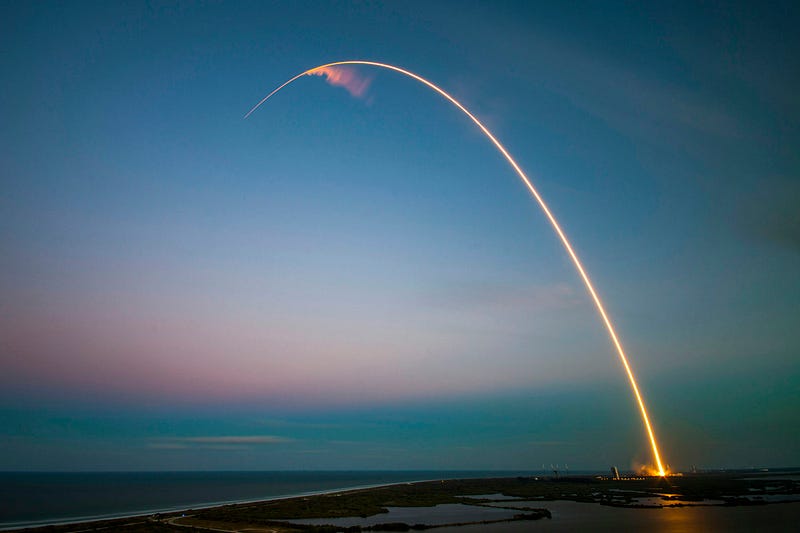Asteroid Apophis: A Scientific Opportunity Awaits in 2029
Written on
Chapter 1: The Return of Apophis
Asteroid Apophis is set to return to our vicinity in 2029, sparking both intrigue and scientific inquiry. Initially dubbed the "God of Chaos" after the ancient Egyptian deity, this celestial body has much to teach us about the universe. As it nears Earth at a distance of only 32,000 kilometers—closer than many satellites—NASA and other space agencies are preparing for a significant event.
Discovered in 2004, Apophis was once a source of concern due to its high likelihood of impact. However, continuous monitoring and research have since alleviated fears regarding a collision. The asteroid's upcoming approach provides a rare chance for in-depth study of a near-Earth object.

A Close Encounter: What to Expect
Apophis exemplifies humanity's ability to track and comprehend near-Earth objects. Initially, the asteroid's trajectory indicated a potential impact, raising alarms among scientists and the public. Yet, through rigorous observation and advanced calculations, the uncertainty surrounding its path has been largely resolved.
The asteroid will pass within 32,000 kilometers of Earth, closer than geostationary satellites. This proximity offers a remarkable opportunity for scientists to collect detailed information about Apophis’ characteristics, including its size, shape, and composition, essential for understanding not only this asteroid but also for preparing for future threats.
International collaboration is crucial in this endeavor. Agencies worldwide, including NASA, are planning missions to observe Apophis closely, underlining a collective commitment to planetary safety and furthering our understanding of space.
Chapter 2: The Science Behind the Concern
Understanding the initial alarm regarding Apophis involves exploring the scientific methods used to predict the paths of near-Earth objects. Upon its discovery, Apophis was classified as a potentially hazardous asteroid due to its size and predicted close encounters with Earth.
This concern stemmed from statistical analyses and simulations that indicated a non-negligible risk of collision. These assessments relied on observations of Apophis' position, velocity, and the gravitational influences of celestial bodies.
A key factor in evaluating the threat was the Yarkovsky effect, which subtly influences an asteroid's orbit. This phenomenon occurs when an asteroid absorbs sunlight and re-emits it as heat, producing a slight thrust that can gradually shift its trajectory.
The complexity of modeling this effect arises from its dependence on the asteroid's physical attributes, which are challenging to measure from Earth. This uncertainty contributed to early fears, as even minor deviations in Apophis' path could have significant long-term consequences.
However, enhanced observations and analyses have clarified Apophis' trajectory, ruling out an impact in 2029 and diminishing the perceived threat. This transition from alarm to assurance underscores the importance of ongoing monitoring and sophisticated computational models in assessing asteroid risks.

NASA’s Proactive Mission: OSIRIS-APEX
NASA's OSIRIS-APEX mission marks a pivotal step toward understanding near-Earth objects like Apophis. Building upon the success of the OSIRIS-REx mission, which collected samples from the asteroid Bennu, OSIRIS-APEX aims to investigate Apophis during its close approach in 2029.
This mission will not gather samples but will conduct an extensive analysis of the asteroid's physical and chemical properties. By mapping its surface and studying subsurface characteristics, scientists hope to gain unprecedented insights into Apophis’ composition, providing clues about the early solar system.
Furthermore, precise measurements of Apophis' orbit will enhance our predictive capabilities regarding its future trajectory and help devise strategies to mitigate potential asteroid impacts.
As the OSIRIS-APEX mission unfolds, it reinforces the significance of proactive space exploration in advancing our scientific understanding and improving our defenses against potential celestial threats.
The first video titled "The Asteroid Apophis Is Coming Back, and NASA Has Confirmed Its Plan!" discusses NASA's preparation for the asteroid's return in 2029. It highlights the mission's objectives and the collaborative efforts involved in studying Apophis.
Global Collaboration in Asteroid Defense
The worldwide response to the threat of near-Earth objects like Apophis illustrates the necessity of international cooperation in space exploration and defense. Governments and space agencies are pooling resources to track and mitigate the risks associated with asteroids.
Efforts include missions similar to NASA's OSIRIS-APEX, which focus on closely observing potentially hazardous asteroids. These initiatives are vital for collecting the data required to develop effective defense mechanisms. Additionally, international forums encourage idea exchange among scientists, engineers, and policymakers, fostering a united approach to planetary defense.
This global effort extends beyond mere observation; it encompasses the creation of technologies and methodologies for deflecting or neutralizing asteroids on a collision course with Earth. Through collaboration, humanity aims to be prepared for any credible threat that may arise.

Chapter 3: Educational Outreach and Public Engagement
The impending approach of Apophis, along with missions like OSIRIS-APEX, offers unique educational and outreach opportunities that engage the public in space science and asteroid defense. These events serve as platforms to raise awareness about the dynamics of our solar system and the significance of planetary defense.
Educational programs, public lectures, and interactive exhibits can make space research accessible and exciting for all ages. Initiatives involving schools and universities can inspire future generations of scientists, engineers, and astronomers.
Through these outreach efforts, the scientific community can cultivate a deeper understanding of our role in the cosmos, emphasizing the importance of space exploration in ensuring humanity's safety and future.
The second video titled "Asteroid Apophis is Coming Back and NASA has Confirmed its Bold Plan" delves into the specifics of NASA's strategy for studying Apophis, emphasizing the mission's significance for planetary defense.
From Fear to Fascination: Apophis's Journey
The transformation of Apophis from a perceived threat to a symbol of scientific opportunity illustrates the evolution of our understanding and response to near-Earth objects. This progression highlights the relevance of space science and planetary defense in modern society.
Moreover, the global collaboration and educational initiatives prompted by this celestial event showcase the unifying power of space exploration. As we continue to investigate the unknown, the story of Apophis serves as a reminder of our shared responsibility to protect and learn from our planet and the universe beyond.